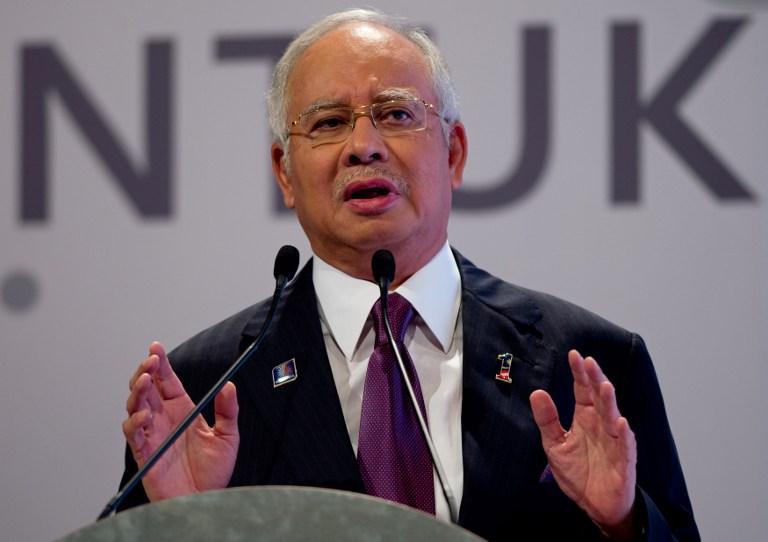PETALING JAYA, July 4 ― Having taken office in 2009 with pledges of reform, Prime Minister Datuk Seri Najib Razak (picture) yesterday said he now intends to hasten their implementation and see the far-reaching changes come into effect.
Since replacing predecessor Tun Abdullah Ahmad Badawi, Najib has made “transformation” a cornerstone of his administration, launching programmes to alter nearly every aspect of the government and economy.
Chief among these are the Government Transformation Programme (GTP) and Economic Transformation Programme (ETP) that are intended to address citizens’ concerns about how the country is being run. A lesser known Political Transformation Programme (PTP) was also introduced, but has received less emphasis.
Now, Najib said it was time to speed up their delivery.
“For my current term, I will focus on accelerating the process of transforming Malaysia,” Najib told the Financial Times in a London interview yesterday. “We have been given the mandate to ensure the GTP and ETP are fully implemented.”
“I want to prove the point that we can make changes from within. We can transform the government and the economy, as well as democracy in Malaysia,” Najib said in the interview.
One of Najib’s earliest reforms was the introduction of the more-inclusive New Economic Model (NEM) that was intended to replace the technically-defunct but still applied New Economic Policy (NEP) on affirmative action that favoured the Bumiputera Malay community. But this was quickly beaten back by conservative Malay groups and right-wing elements within his Umno party, and little has been heard of it since.
In yesterday’s interview, the FT questioned Najib on whether his administration was strong enough to see through the reforms given the racial lines that were drawn during the May 5 general election.
Responding, Najib acknowledged an “unhealthy social polarisation” in the country.
“The way forward for Malaysia is a set of policies that can be accepted by all Malaysians, and be fair to all,” Najib added.
“If a set of policies satisfies one community but not another, then we will never achieve national consensus.
Najib previously announced plans to propel Malaysia to high-income and developed nation status by 2020 and raise per capita income from the current US$9,800 (RM30,380) to US$15,000 by then.
Malaysia needs to maintain an annual growth of about 6 per cent in order to achieve this target, and has so far remained close to the target.
Of greater concern is the mounting debt levels, both public and private, that could derail the progress.
With a debt level of over RM500 billion, Putrajaya remains committed on a “rationalisation” programme in order to slash its costly subsidy bill and is looking to expand its tax base in order to better balance its books. Household debt also hovered at a worrying 82 per cent of the GDP.
“We do need to introduce [a goods and services tax] to improve government revenue,” Najib said in the interview, before criticising what he described as frivolous borrowing for private consumption.
“People willy-nilly borrow for consumption. Civil servants willy-nilly borrow for consumption and then wonder why they don’t have enough money at the end of the month.”



















